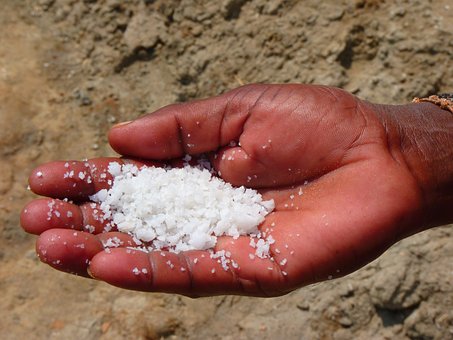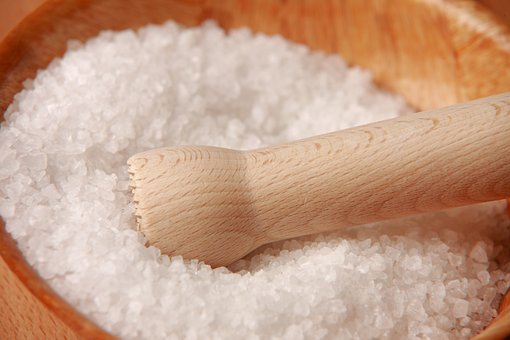Home
HISTORY
Posted by Chester Morton / Sunday, 21 May 2017 / No comments
The importance of salt to the economy of pre-colonial Ghana

THE IMPORTANCE OF SALT TO THE ECONOMY OF PRE-COLONIAL GHANA
Introduction
Salt was mined in both the coastal and Savannah areas of
pre-colonial Ghana. It constituted one of the major economic activities of the
people. There were several methods employed by the people to produce
salt.
Digging holes
One of the methods used was that, the people living at the
coast dug holes along the beaches for the Sea water to collect inside them. It
is then allowed to evaporate. Once the
water evaporates, the salts crystals are left behind to be collected and
processed for domestic use or for sale.
Using bowls
Another method was to fill bowls with Sea water and allow the
water to evaporate. This leaves the salt crystals in the bowl for collection.
Rock salt
They also collected salt from rocks. This method involved the
collection of salt rocks and soaking them in water. The salt dissolved into the
water. After that the salty water is left to evaporate, leaving the crystal
salt in the container.
IMPORTANCE OF SALT
As a medium of exchange
Salt was important to the economy of pre-historic Ghana because
it was used as a medium of exchange. Apart from the use of cowry shells as a means
of exchange for goods, there was also the use of salt as a mode of payment.

As a preservative
Salt was important as a preservative in the pre-colonial
economy of Ghana. Hitherto, food could not have a long shelve life, it had to
be eaten, otherwise it was going to go bad. With the discovery of salt in the
preservation of food items, the shelve life of most traditional foods became
longer. Salt was used, for example, to preserve fish. The fish was salted and
left in the open air to dry. After this the fish could be left for a longer
time without it getting rotten.
As a source of income
Salt was an essential commodity in pre-colonial Ghana. People
were employed to work on the various salt mines in the country. There were
those also who were the owners of the salt mines. Apart from these two, there
were those who traded in the commodity, moving it from the producing areas to
market centers. All these people earned incomes for the role they played. The
salt industry in pre-colonial Ghana, therefore provide income for the people.
Source of employment
The traditional pre-colonial salt industry in Ghana was important because it provided a stable source of employment to the people willing and able to work in the various sectors of the pre-colonial salt industry. The salt had to be mined, it had to be transported across long distances to other parts of the country, mostly on foot, for sale. There were head-porters employed to carry bagged salt. All these categories of employees were engaged by merchants and were paid. The salt industry, therefore, gave employment to the inhabitants.
As medication
Salt was important because it was employed in the healing of
certain ailments. In traditional pre-colonial Ghana, salt was used in the
healing of some degrees of burns. The application of salt to affected area
immediately after the burn, ensured that no blisters developed. It was also
used as a disinfectant; fruits were washed in salty water to remove any germs
on it. Salt water was used in the cleaning of wounds.
Effect on migration patterns
The salt industry in pre-colonial Ghana, contributed to the
increased population for some communities, especially where the salt was mined.
The salt industry attracted people into the trade or employment opportunities
that abounded there. People moved from far and near toward the salt mining
areas, thus increasing the size of the population of such areas as Ada, Keta
etc.
SAMPLE QUESTIONS
1. Describe how salt was mined in the pre-colonial
traditional Ghanaian society and show its importance.
2. a. Describe three ways by which salt was obtained in
pre-colonial Ghanaian society?
b. In which four
ways was salt important to the traditional Ghanaian before the era of
colonization?
Related Posts

